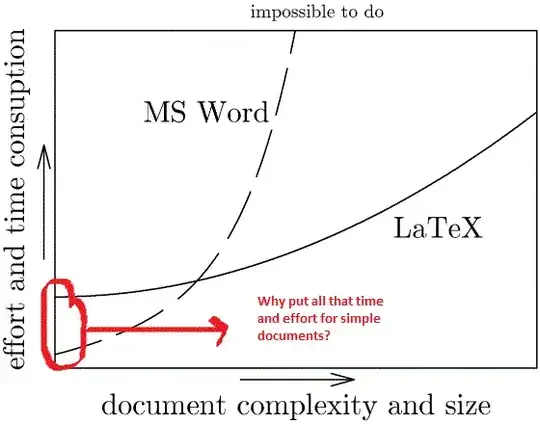In the question What is "low code"?, there are many comments against it. One example:
In my experience these tools are managed by business users until they've painted themselves into a corner. Then developers are brought in to untangle a gigantic mess of unreliable buggy garbage with gobs of unnecessary complexity.
However, I think that it's just one of the many tradeoffs that we have to face: simplicity vs complexity. If it's safe to say that Word is a no code program, then this Word vs LaTeX graph conveys my point:

Surely Word has a market for it. It will soon reach its limitations, and soon the users will be frustrated for having to learn another tool that they aren't familiar with it. But if low code is nothing different to rapid application development, then this frustration should be familiar way back to the 90's, and thus they have learned that it's really a need and had to deal with it. Either by:
- educate the business users before they decide the tools to use, or
- educate the business users to learn the better tools while the no code/low code tools are being used, so when the time comes the transition is easier, or
- accept that when the "gigantic mess of unreliable buggy garbage with gobs of unnecessary complexity" happens, it's their job to fix that
Based on the number of upvotes for the frustration in the linked question, and the lack of comments acknowledging that this has been happening from the 90's, I assume that this is still a frustration. They still not accept that this is really a need and have to deal with it. Is this correct?
If you need the software and the segment I'm thinking at, it's Fibery in the ERP segment. You can read its blog here: No-code Revolution. Why Now?